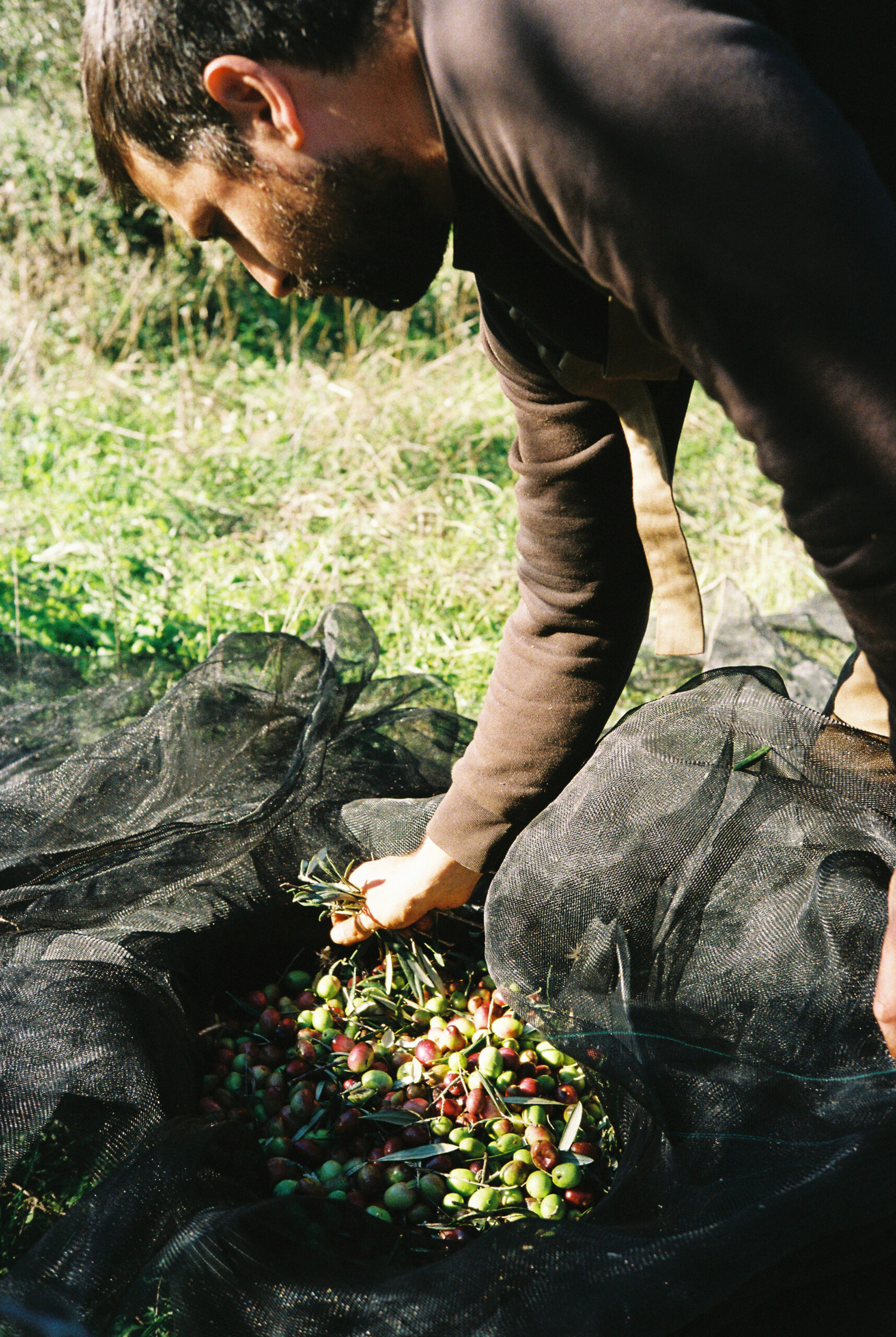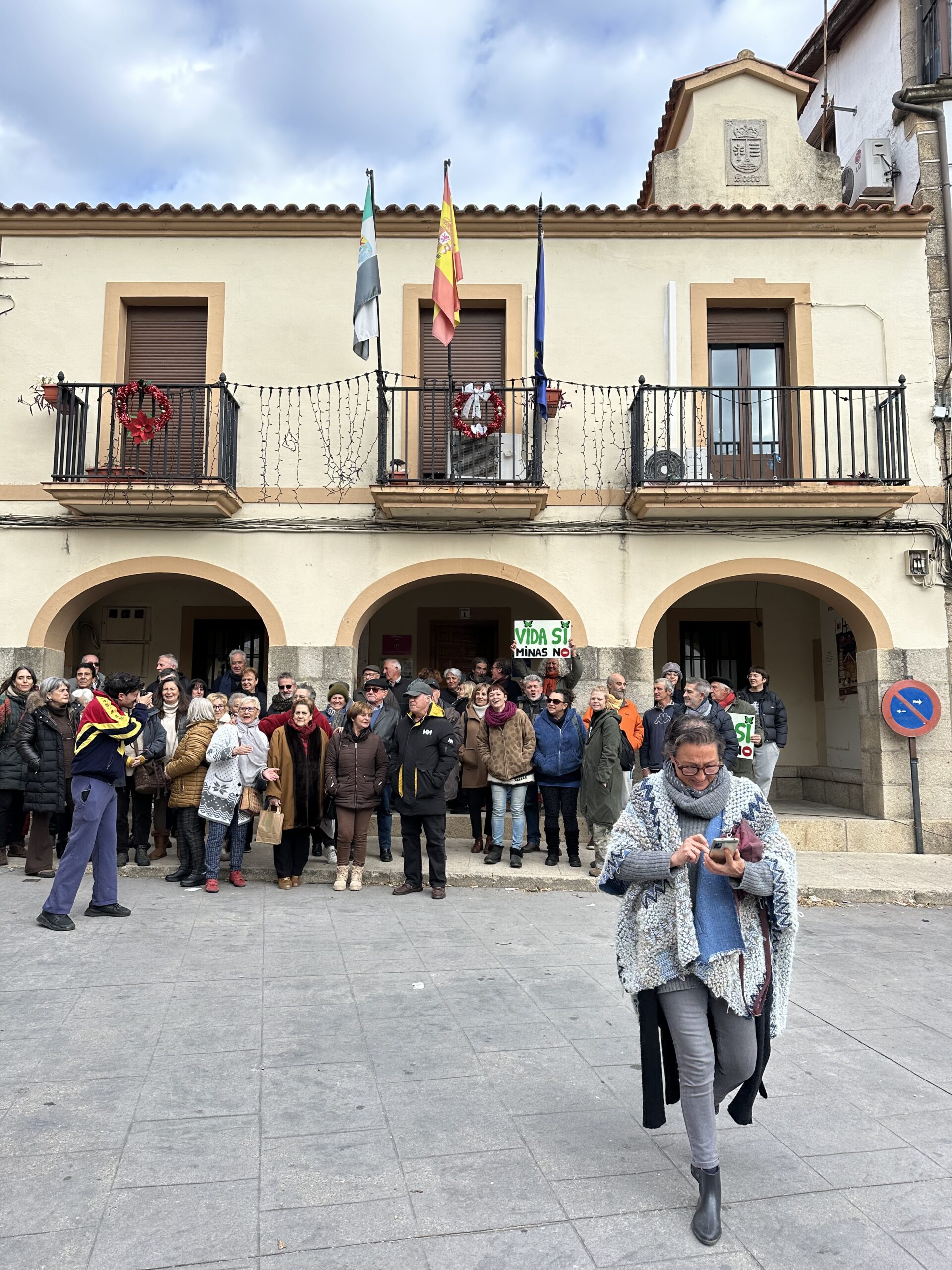Mountain guide Eduardo Mostazo was born and raised in Cáceres, a small city in southwest Spain close to Portugal, which has suffered a rural exodus. Now it faces a new threat: a proposed lithium mine which Mostazo and other local activists fear could contaminate water sources and the nearby mountain, threatening birds such as the endangered Spanish imperial eagle.
Their struggle to protect the pristine environment highlights a growing challenge for Europe, as the continent races to start extracting and producing minerals like lithium that are critical to the clean energy transition, instead of relying on imports from China and other emerging economies.
Yet, while bureaucrats in European capitals are under pressure to secure supplies on their soil, communities where the resources are located question whether they will benefit from their exploitation.
They told Climate Home they need more information before agreeing to host mining projects on which they feel they have not been adequately consulted, and want stronger guarantees that the rush for minerals won’t harm the nature on which local livelihoods depend.
Explainer: Why the world is racing to mine critical minerals
In Cáceres, mining company Extremadura New Energies (ENE) – a subsidiary of Australian Infinity Lithium – has promised to create 1,500 jobs during the mine’s construction and 700 jobs during 26 years of operation.
Nonetheless, locals worry that a mine could damage today’s economic mainstays of tourism and agriculture. “There is no talk of alternatives,” said Mostazo. “When a proposal comes from a big company with lots of millions, there’s the impression that the politicians don’t really investigate [the impacts], they go blind with the promise.”



Breaking Europe’s mineral dependence
As part of its efforts to boost clean energy and electrification, the European Commission wants to shrink its dependence on Chinese-produced minerals by ensuring that at least 10% of critical raw materials such as lithium, copper and nickel are extracted within Europe by 2030.
The International Energy Agency estimates that global demand for lithium – a key component in electric car batteries – could increase by up to 42 times by 2040 from 2020 levels. Currently, the EU imports four-fifths of its extracted lithium and 100% of its processed lithium.
Santos Barrios, professor of crystallography and mineralogy at the University of Salamanca, said Europe’s mineral dependency “is a very big problem” because those materials come from countries that often lack social and environmental protection.
“They import it from other places where it is much cheaper to extract it than here, but at the cost of losing many things along the way,” he explained. The ideal situation, he added, would be to no longer rely “on countries that are not completely transparent, such as China”.
To speed up progress ahead of its 2030 deadline, in March the European Commission approved 47 strategic mining projects, which will benefit from fast-tracked permitting processes and easier access to EU funding.
Spain and Finland are the EU countries with the most strategic projects involving extraction or integrated extraction and processing of critical raw materials, with five projects each.
ENE applied but was not selected due to delays in the permitting process, with its request for a licence still sitting with the regional government, which has requested the company to submit more detailed information on the project.
Requests for project documents denied
Only 40 kilometres north, in Cañaveral, meanwhile, many locals were disappointed to learn that a nearby mining project led by the company Lithium Iberia had made the list.
A citizens’ group opposing the mine – worried about the potential impact on water sources and nature – is preparing a letter to the president of the European Parliament asking for access to the project documentation, including its environmental impact assessment and the methodology used to evaluate applications.
The European Commission has previously denied such requests, citing it as sensitive business information, said Julio César Pintos Cubo from the green group Ecologistas en Acción.
Others, such as Friends of the Earth Europe, have also argued that the strategic projects under the EU’s Critical Raw Materials Act erode transparency and have failed to engage civil society, as neither the Commission nor EU member states have granted access to the documents submitted by the applicants.
“EU law must not be weakened to benefit poorly regulated companies – something that is unfortunately common in the mining sector – while the administration abandons transparency, water and environmental regulations, aligning itself with the mining lobby,” said Pintos.
A Commission spokesperson told Climate Home the strategic minerals projects had been assessed by independent experts, who were asked to evaluate – among other criteria – whether they can be “implemented sustainably”.
Lack of “democratic accountability” threatens success
Experts are warning that limited transparency and local participation in selection of the EU’s strategic projects could have negative impacts on their implementation.
“There will be opposition because the European Union is taking these decisions in Brussels following an accelerated procedure for new projects. There has been no deep consultation and there is a lot of pressure to achieve these objectives,” said Marco Siddi, a researcher with the Finnish Institute of International Affairs.
The absence of “democratic accountability” around these high-stakes mining projects could provoke a social reaction similar to that of the yellow vests, Siddi warned, referring to the unrest that erupted in France in 2018 after the government tried to hike fuel prices as a green measure.
Lithium tug of war: the US-China rivalry for Argentina’s white gold
The Commission spokesperson told Climate Home that each country’s authorities have the main responsibility for implementing these strategic projects, including carrying out consultations with local people “in accordance with national rules”.
Barrios, the researcher, said all opinions should be considered and environmental damage minimised, “but the last word has to be left to qualified personnel”.
The Extremadura government in Spain did not respond to a request for comment on whether and how communities had been consulted on the strategic project in Cañaveral.
Earlier Raquel Pastor, the region’s director general for industry, energy and mining, told Climate Home News that “projects of any kind that generate employment, wealth, and development in the region are welcomed, as long as they comply with all regulations, including environmental ones, of course, and with the law.”
Businesses aim to do no harm
The mining companies, for their part, have promised in most cases to minimise the impact of their operations on nature and contribute positively to rural development.
ENE’s CEO Ramón Jiménez Serrano told Climate Home that the Cáceres mine – which also plans to host a nearby processing plant – would only use treated wastewater and therefore would not impact local water supplies. Despite this, the company’s application for a permit with the local water authority was denied.
According to Steve Emerman, an independent geophysics and mining expert who has testified before the European Parliament on the issue, “there is no precedent for any modern, industrial mine that has been operated and closed without environmental contamination”.
On a cold and windy January afternoon, 150 kilometres north of Cáceres, 100 people from nearby villages – including the local priest – packed into the cultural centre in Ciudad Rodrigo, a town in the region of Salamanca, for a session on the impact of another proposed lithium mining project in the area.


This project, led by another Australian mining company, Energy Transitions Minerals, is still in its early stages, and is not on the EU’s list of strategic projects. But there is growing concern about how it could affect the region’s landscape and traditional jobs. According to the company, Salamanca is the European region with the highest concentration of critical raw materials, including lithium, copper and tantalum.
Increasingly, foreign-owned companies want to jump on Europe’s critical minerals bandwagon. Many are so-called junior mining companies that lack the financial and technical capacity to actually extract the materials from the ground, explained Emerman. “They just want to get the permit, then they will sell it to someone who can carry out the project,” he said.
Doubts over corporate sustainability plans
Locals fear this could be the case in Bosnia and Herzegovina, an EU candidate country where the lithium rush has reached the small northeastern town of Lopare. In 2023, the Swiss-owned junior mining company ARCORE AG announced it had struck “gold” in the densely forested area of rolling hills and rich lithium deposits, and is currently awaiting approval of a concession agreement from the Republika Srpska authorities, one of the country’s two governing units.
Environmental lawyer and activist Azra Berbić thinks it likely that another company with more resources and funding will purchase that agreement and carry out the lithium mining. ”We’ve seen this story before. This is why the local communities are so worried… they fear the agreement will be sold to a company like Rio Tinto,” she said.


So far the British-Australian conglomerate, one of the world’s largest mining companies, has shown no formal interest in Lopare. But Rio Tinto has faced a backlash over its environmental and labour practices around the world, including in neighbouring Serbia where its $2.4 billion investment in a proposed lithium mine in Jadar ignited mass protests in 2024.
Announcing that project in 2021, the company said it aimed to minimise the impact on communities by building the Jadar mine “to the highest environmental standards”, including dry stacking of tailings so they can be reclaimed without a dam and treating water so that 70% comes from recycled sources.
Human rights must be “at the core” of mining for transition minerals, UN panel says
In the case of Spain’s Cáceres, ENE has said it will use 100% renewable energy for its operations, although CEO Jiménez admitted that not all the above-ground machinery needed can yet run on electricity.
And in Salamanca, the regional government’s spokesman for energy transition minerals, Jorge Gil Mediavilla, told Climate Home that “although less money will be earned, the company has agreed to renounce open-cast mining in order to carry out small, highly concentrated underground mining operations”.
Yet, some experts are sceptical about the viability of the Salamanca project. “I doubt that it could be profitable,” said Antonio Areas, a veteran mining entrepreneur from the area, while geologist Antonio Aretxabala noted it would be the first underground lithium mine in the world.
Ángel Sánchez Corral, spokesman for local anti-mining platform El Rebollar Vivo in Salamanca, said many local communities remain unconvinced by the EU’s push for homegrown production of critical minerals and politicians’ promises of economic growth and jobs.
“The declaration of strategic projects by the EU is a step backwards in terms of environmental protection and social and territorial rights for the benefit of extractive and speculative companies – it makes us lose confidence in the EU institutions,” he said.
Reporting for this article was supported by the Magmatic School of Environmental Journalism.

